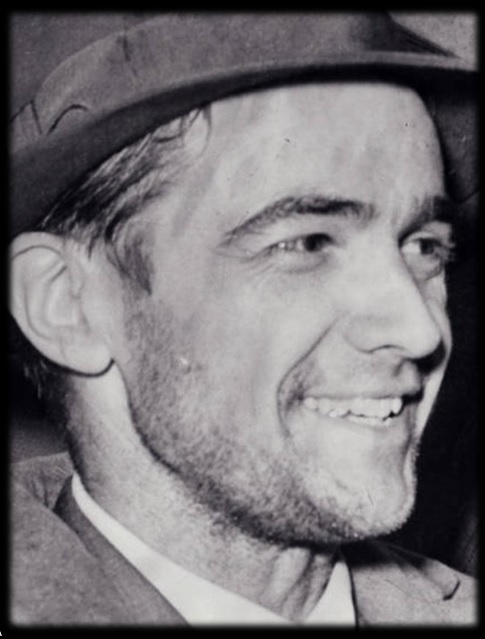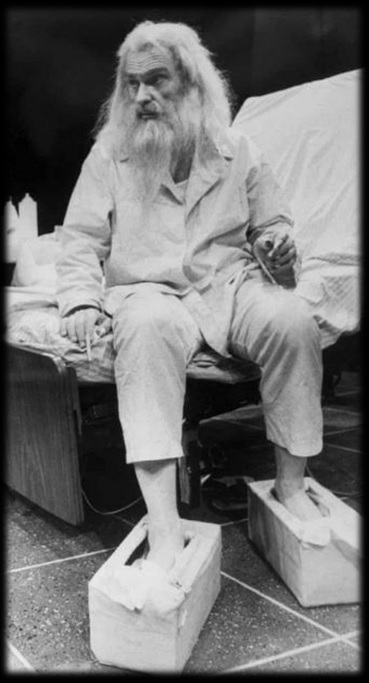


The naked recluse who brought down the (White) House
Students of history know about it. American’s over the age of 40 lived it, but most probably don’t know the true motive behind Watergate.
Ultimately, our nation’s largest political scandal probably had little to do with politics and everything to do with greed.
1956. One of our country’s greatest heroes during WWII, Dwight Eisenhower, was President. His VP, Richard Nixon was also a WWII veteran but, as a Navy Commander, he hardly shared the legendary status of a five star general.
Nevertheless, someone needed to occupy the Oval Office in 1960 when “Ike” termed out.
As Nixon plotted his future, his younger brother Donald was struggling. Nixon’s Drive-in restaurant in Whittier was in deep trouble and needed a bailout if it was to survive.
Enter Howard Hughes and an unpaid $205,000 personal loan.
There's no evidence Richard Nixon ever met Hughes however that doesn’t mean they didn’t interact. His right hand man, former FBI Agent Robert Maheu worked for Hughes for 17 years and also never met him either. The pair either spoke by phone, or for more personal meetings, Maheu would stand outside the hotel room of his reclusive boss and pass notes under the door.
The loan to Donald Nixon spelled almost instant trouble for the Vice President. Hughes was a major government contractor and made millions off the taxpayers. Even a Hughes confidante recounted the loan, "Had a bad smell to it."
Despite Hughes financial infusion, Nixon’s went under a year later. It would be prophetic of future events.
When details of the loan emerged during the 1960 campaign, many thought Richard Nixon fumbled the issue. Later, Nixon complained the loan was one of the reasons he narrowly lost the presidential election to John F. Kennedy.
That belief led to devastating consequences. Reportedly, Richard Nixon became almost neurotic about connections between Hughes, his brother and himself.
Maheu later commented, “If you’d handled something as badly as Nixon, you'd have a hard time forgetting it too."
By the early 1960’s Howard Hughes, successful businessman, famed aviator and Academy Award winning motion picture producer, was no longer the handsome celebrity depicted in bygone newsreels. His love interests, Katherine Hepburn and Rita Hayworth were distant memories. Hughes now spent his days naked, addicted to drugs while locked in his Las Vegas hotel room watching the same movies over and over.
But that doesn’t mean he was silent - far from it.
Robert Maheu recalled Hughes gave routinely him “a blizzard of handwritten notes” ranging from politics to aircraft, to salaries for Las Vegas showgirls. Maheu recalled, “There were periods of great lucidity. Then, the next day, it’d be a memo that didn't make a bit of sense."
One memo that made a lot of sense came shortly before Richard Nixon’s 1968 presidential campaign. Hughes predicted the victory, "Under our sponsorship and supervision every inch of the way."
Did Hughes believe he could own the White House?
Maheu claims yes. “Howard often bragged there’s no one in the world I can't buy or destroy.'"
Some Watergate experts believe by trying to buy Nixon, Hughes may have unwittingly planted the seed for the president's destruction.
Soon after the 1969 inauguration, Hughes ordered Maheu to give $100,000 to the president's close friend, Bebe Rebozo, with the intent to give the money to Nixon personally. Congressional investigators believe the cash was to win Hughes favorable government treatment for his casino and airline businesses.
Maheu claimed it was a political contribution. Would a contribution have been illegal? Not if the money had gone to the political campaign. Instead, it went through Rebozo directly to the president.
The $100,000's might have been lost to history if not for Larry O'Brien, the leader of the 1972 Democratic presidential campaign. His offices were the target of the Watergate burglars in June of 1972.
Four years earlier, O'Brien had been on Hughes payroll. Coincidence? Not likely. O’Brien was a former Hughes Corporation lobbyist hired by Robert Maheu personally.
President Nixon knew O’Brien well. A former member of the JFK administration, O’Brien was long considered a political enemy. Reportedly, Nixon had spent years seeking ways to discredit him.
More than a year after the Watergate burglary, President Nixon ordered Chief of Staff H.R. Haldeman, White House counsel John Dean and Special Counsel Charles Colson to investigate the connection to O'Brien and Hughes. Haldeman later recalled, "On matters pertaining to Hughes, Nixon seemed to lose touch with reality."
Robert Maheu explained why: "If I were the recipient of $100,000 in cash, the possibility that that may surface, it would bother me. I think it would bother any human being."
Was President Nixon so worried about the bribe that he’d orchestrate a burglary to cover it up? Chief Watergate investigator Terry Lenzner answered, "I don't know if it's a sole motive but I'm absolutely certain it was a significant part of the president's thinking.”
Was Lenzer also an enemy of the president? Not according to Lenzner. “When I started the investigation into the Watergate break-in, I never thought it was going to reach anybody in the White House, at any level. I went into the investigation with a completely open mind.”
In his Watergate report to the U.S. Senate, Lenzner authored an entire section on Hughes as the likely motive for the burglary but the opinion was never included in the final report. Lenzner said he was told why that section was omitted.
Watergate ultimately forced President Nixon to resign in August 1974. Had he not quit it’s likely he’d been impeached. Other conspirators weren’t as lucky - forty government officials were indicted. Dean, Haldeman and Colson, among others, went to prison.
So did Larry O’Brien know about the bribe? Robert Maheu claimed no.
So why, if Richard Nixon believed Hughes cost him the 1960 election, would he take money from the same man years later?
Both Lenzner and Maheu claim simple greed.
In 2005, CBS news traced the $100,000 through a maze of bank accounts and ultimately determined more than $46,000 was spent on Nixon's house to purchase, among other things, a putting green and a pool table.
Howard Hughes died in 1976. Despite being one of the world’s wealthiest men, the six foot three aviator weighed less than 100 pounds at the time of his death. His filth ridden body had finger and toe nails well over six inches long and he desperately needed a haircut and shave.
Richard Nixon died in 1994 taking the rest of the Watergate mysteries with him.
In the end, greed shaped the legacies of two men who could have been giants in American history. President Nixon opened dialog with China and ended the Vietnam conflict yet he’s most commonly remembered as the only US President to resign.
While many of Howard Hughes companies still exist, and his mammoth plane, “The Spruce Goose” is the largest aircraft to ever fly, few know that during last decades of his life Hughes never paid a dime in personal income tax. Corporate profits were “donated” to a charity operated by Hughes then redirected to fund his lifestyle. In the end the man known as the Aviator was also one of the biggest tax cheaters in US history.




Long white hair, outgrown fingernails, pills, dark rooms and tissues to keep away the dirt were among the descriptions of the life of billionaire Howard R. Hughes in his last years. Before his death, the reclusive Hughes was known to Americans more as an invisible fortune than as a real person. Hughes's late years inspired playwright Sam Shepard to write "Seduced."